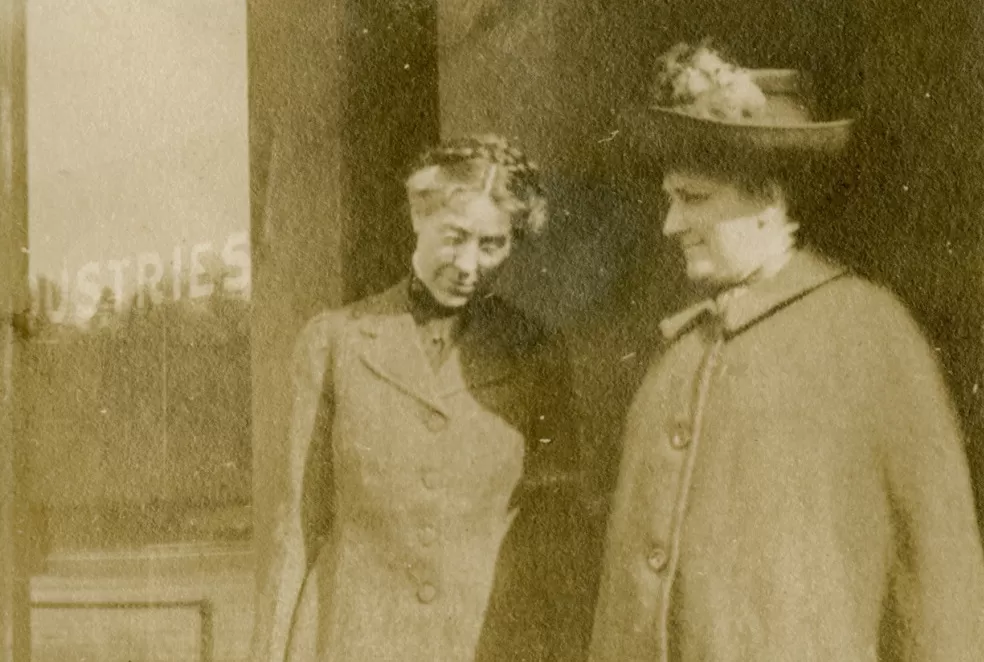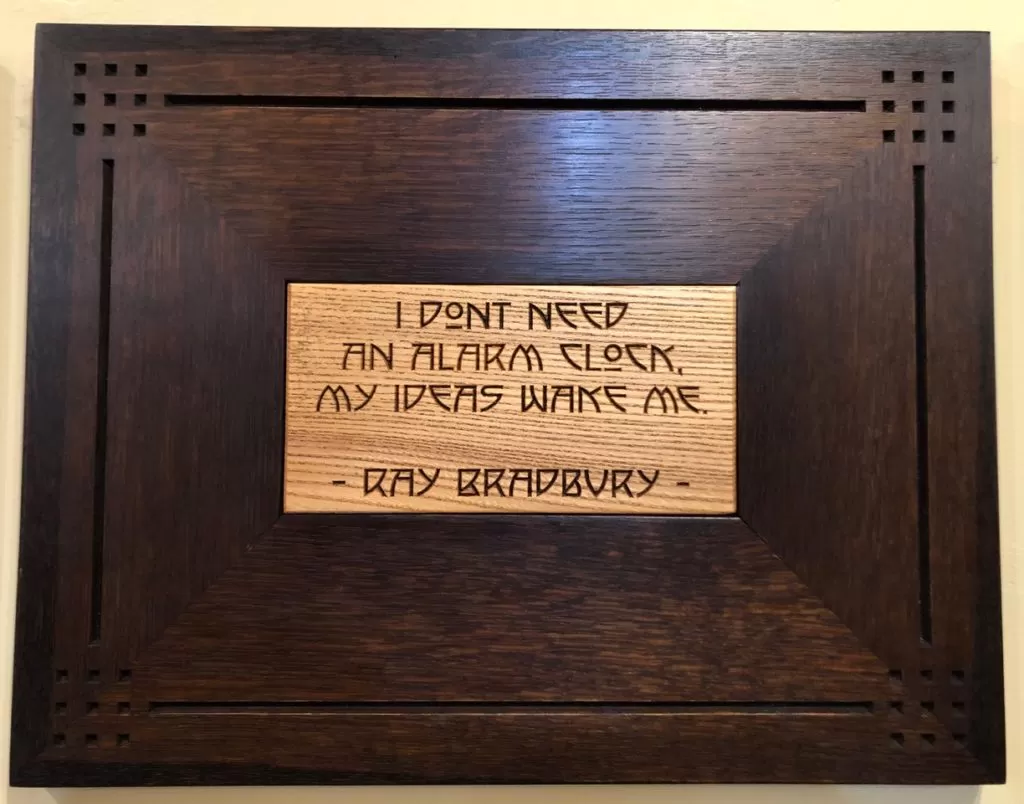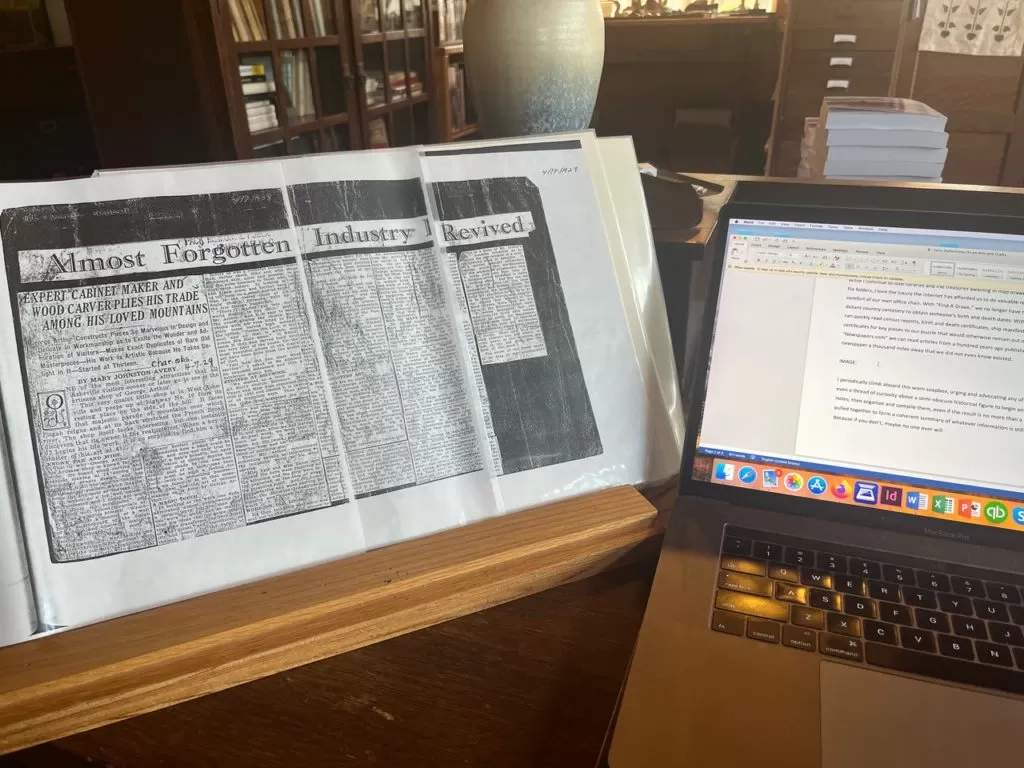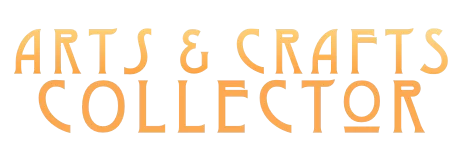Early Reflections On an Arts and Crafts “Retirement”
Living in what may later be labeled “The Era of Early Retirements,” many of us are watching with a combination of amazement, wonder, and puzzlement — tinged with a touch of guilt – to discover what it actually means to now be living a life without conventional boundaries.
For myself, it means stepping away from the responsibilities and the worries which come with the commitment to convince more than 100 exhibitors and 2000 attendees to journey to Asheville, North Carolina, to experience a four-day Arts and Crafts Conference and Shows. (Editor’s note: Bruce will return to 2023’s National Arts and Crafts Conference at the Grove Park Inn. He will have one or two different roles, but he will return regardless.)
When asked what I now plan to do, I reply, “Write books that no one may ever read.”
For more than ten years, I have been waiting for the opportunity to devote 95% of my working time and energy into the research and writing of a biography of Arts and Crafts instructors Eleanor Vance and Charlotte Yale.

The women arrived in Asheville in 1901 and before their deaths in the mid-1950s had been responsible for the formation of Biltmore Estate Industries, Biltmore Industries, the Artisans’ Shop, and Tryon Toy Makers and Wood Carvers – all Arts and Crafts enterprises which shaped the lives of hundreds of young men and women.

As I dive deeper and deeper into their many lives, I find myself eager to awaken each morning, anxious to discover – and to share – each new hidden gem of information. As I do, names and dates materialize into real men and women, each with their own dreams and disappointments, as well as lives filled with successes and failures.
I have always loved history. Even as a college English major I sometimes savored the lives of the authors even more than their sonnets and novels. To be honest, F. Scott Fitzgerald’s life is far more fascinating than any of his four novels. My earliest forays into researching historical literary figures had required long hours in dimly-lit libraries, threading reels of fragile microfilm between the glass plates of a stubborn reader — usually one without the capability to print a key article, forcing us to transcribe each blurry line of tiny newspaper text onto 4”x6” notecards.

While I continue to love libraries and the treasures awaiting in map drawers, photo albums, and file folders, I love the luxury the internet has afforded us to do valuable research from the comfort of our own office chair. With “Find A Grave,” we no longer have to hike to a distant country cemetery to obtain someone’s birth and death dates. With “Ancestry.com” we can quickly read census reports, birth and death certificates, ship manifests, and marriage certificates for key pieces to our puzzle that would otherwise remain out of sight. And with “Newspapers.com” we can read articles from a hundred years ago published in a small-town newspaper a thousand miles away that we did not even know existed.

I periodically climb aboard this worn soapbox, urging and advocating any of you who harbor even a thread of curiosity about a semi-obscure historical figure to begin an online search. Take notes, then organize and compile them, even if the result is no more than a few paragraphs pulled together to form a coherent summary of whatever information is still available — because if you don’t, maybe no one ever will
And, if you’re lucky, you’ll catch the fever — and might even end up in your local library.
Until next week,
“Don’t wait. The time will never be just right.” – Mark Twain
“If you wait until you have enough time, it will never get done.” – Bruce Johnson
Bruce
